‘The Green Knight’ Misses The Lessons Of Vice And Virtue Of The Original Myth
I recently watched “The Green Knight,” and I have to say, I was so excited to see this film but ended up really disappointed.
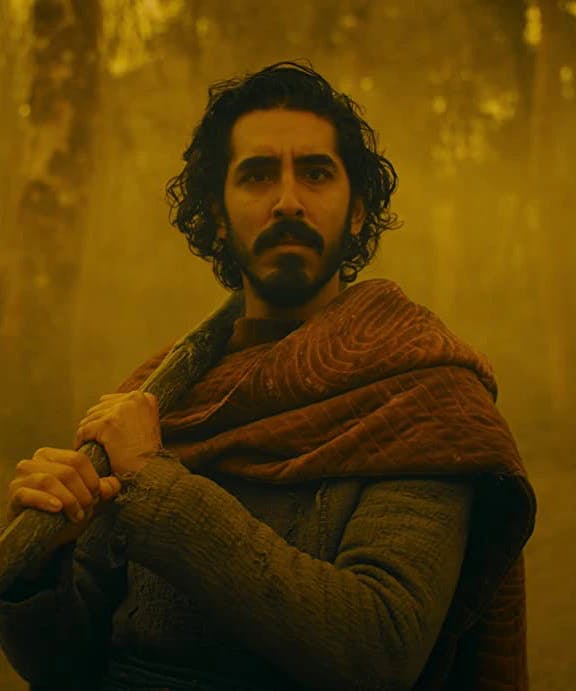
Though I have only watched the film once so far, I have read the original poem and am familiar with the era and literature, having written my college honors thesis on Der Arme Heinrich, a 12th century Middle High German courtly poem.
Serious spoilers ahead!
Sir Gawain and the Green Knight is a 14th century Middle English chivalric romance and one of the most well-known Arthurian tales. Embedded in this tale is a strict code of ethics stemming from the Christian understanding of human morality and man’s relationship with God, each other, and the rest of creation. Sir Gawain is tested against this code throughout the story, as it would seem that King Arthur and his Knights have reduced this strenuous code to mere good manners. Sir Gawain, like the Old English epic poem Beowulf, is an important window into Anglo-Saxon and Middle English cultures and remains important today for its romance and adventure, exploration and defense of morality, courtly love, and the motif of the quest. I mean, who doesn’t admire a real knight in shining armor, even today?
The Movie
The 2021 film The Green Knight is very abstract and dare I say artsy-fartsy, but honestly, that didn't bother me. After all, I'm a great fan of Wes Anderson and Terrence Malik films. The trailer does a good job of preparing the viewer for this director's style. If this isn't up your alley, consider yourself warned. The costumes, set design, and acting are all fantastic. The pace takes its time but never meanders, and there's some CGI but it's well done and also doesn't distract from the film. I also liked the symbolic emphasis of the color green throughout the film.
And to be fair, J.R.R. Tolkien, who translated the poem into modern English, did call Gawain the “most difficult character” to interpret.
Up to a certain point, the film does a good job of following the plot of the original poem. Morgan le Fay summons the Green Knight to scare Queen Guinevere (to death) and prove that King Arthur’s Knights of the Round Table aren’t as honorable or brave as they seem. (You’re supposed to know this part on your own, by the way, because it’s not explained in the film.) Morgan le Fay seems to succeed when no one initially takes him up on his “friendly” challenge – the Green Knight proposes to receive one blow with an axe and to return that blow in a year and a day. Then Gawain steps up. With some artistic interpretation, the following events stay pretty close to the poem.
The Not So Knightly Sir Gawain
Even with that said, I came away a bit disturbed by Gawain. He starts out unfavorably, and that alone would imply the promise of upward character growth. To be perfectly honest, he’s a promiscuous, drunken slob, definitely unworthy of sitting next to his uncle King Arthur. He has a “year and a day” to ready himself for this quest but spends the entire time doing the exact same thing: sleeping around, getting in fights, and getting wasted. There’s nothing sympathetic about him save for maybe his willingness to take up the Green Knight’s challenge in the first place. But even that could be dismissed as impetuousness in light of his other faults. Meanwhile, his renown for taking up the challenge is growing, and along with it, the expectation of his success and honorable return. Suddenly, the appointed day is almost upon him, and he must begin his quest to meet the Green Knight. He's totally unprepared.
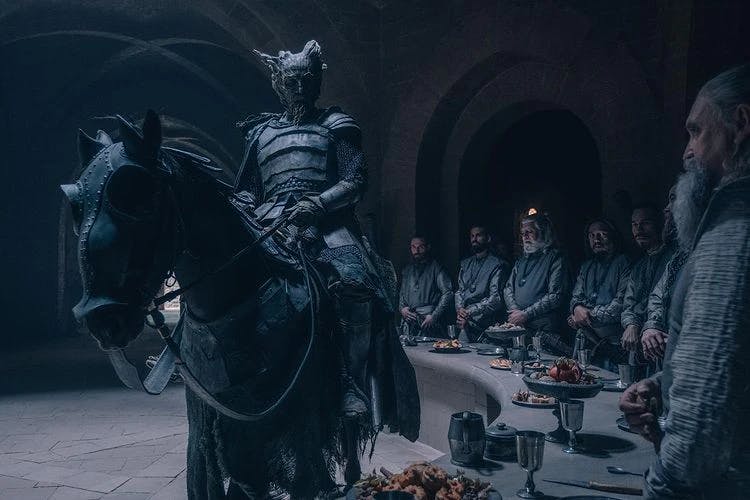
He starts by receiving Queen Guinevere’s admonition to be faultless in his five senses; never fail in his five fingers; remain faithful to Christ’s five wounds; and be strengthened by the Virgin Mary’s five joys, none of which are ever mentioned again. In fact, his shield painted with an icon of the Blessed Virgin Mary’s image is destroyed, perhaps symbolizing his flimsy adherence to these counsels in the first place. From his witch mother Morgan le Fay, he receives a green sash that should protect him from harm, which differs from the original poem. In the original poem, he receives this much later through dishonest means, though in both versions this seems to be the linchpin of Gawain’s testing.
But as he leaves for his quest, he fails every test of his character. He fails to commit to his peasant lover; he fails to treat the scavenging peasant with knightly chivalry; he lies to said peasant when that peasant ambushes him and steals his things; when asked to retrieve a ghostly maiden’s head from a pond, he first selfishly asks her what he can get out of it; when offered friendship and guidance by a fox, he betrays the fox and its advice. The worst of it, though, comes when he happens across a castle owned by Lord Bertilak and his lady not far from his destination. He utterly fails the tests of chastity and integrity, which seem like the most important ones.
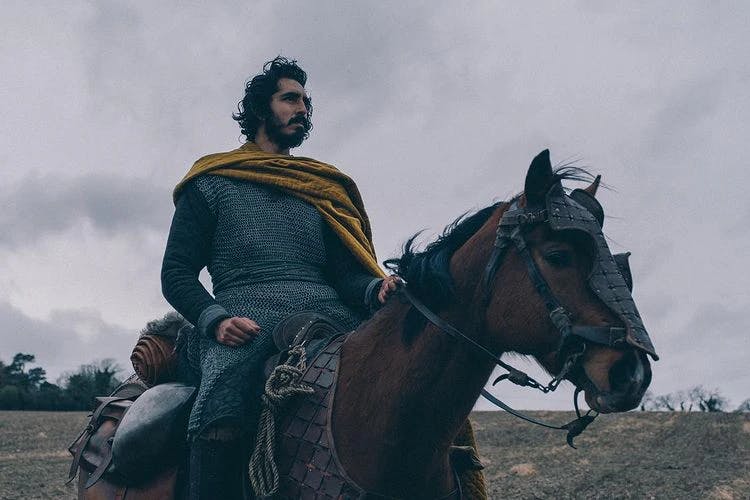
The Final Test
When he finally faces the Green Knight, the Green Knight feints his blow twice when Gawain flinches, which follows the original poem. But then we get a dream sequence in which Gawain imagines his life were he to run away and claim the honor he hasn’t earned. He becomes king, takes away the son his lover bears him, marries a noblewoman, wages wars, then loses his son to those wars, and becomes reviled by his people. In the end, it turns out that the green sash is the only thing keeping him safe. He removes it from his waist and his head falls from his neck and we’re dropped back into the scene in the Green Chapel. Having lived this alternate reality, he suddenly, and unexpectedly, receives the will and virtue to remove the sash and receive whatever the Green Knight has in store for him. The Green Knight praises him, then says anyway, “Off with his head.” And the screen cuts to black.
And I think that's what ultimately bothered me most about the film: Gawain acted virtuously in the end and it’s totally undeserved. There is not one time when he fought against his vices to build virtue and make the right decision. He never apologizes or shows the slightest remorse for any of his poor behavior. Not very knightly. Not very romantic. Not very chivalrous. This film upsets the original poem’s exploration of vice and virtue, and I think this stems from a deeper cultural problem we’re facing today in which morality is emotional and relativistic. Unlike modern works like The Lord of the Rings, there is no objective good or evil in this film. Denying this reality has left our modern society incapable of discerning between the two.
It's also poor story writing for a film. Characters don't suddenly realize their moral need after never doing any of the work to get there.
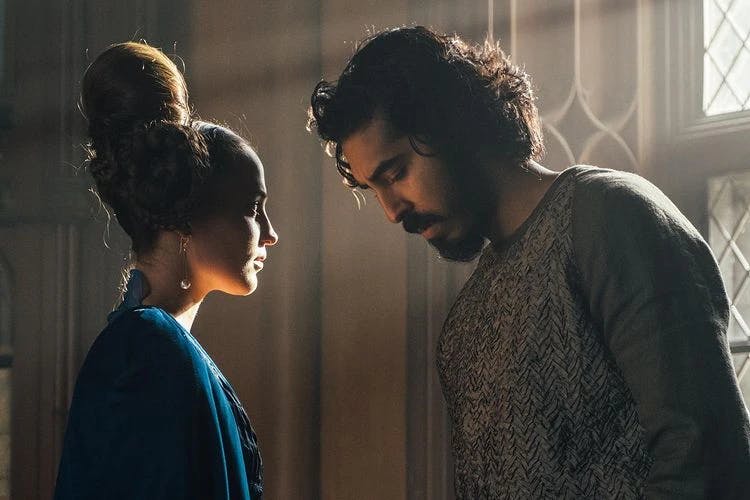
The original poem has a very different – and much more fulfilling – ending. In the poem, Gawain stays for several days at Lord Bertilak’s house, and every day they play a game in which they surrender to each other what they each “gained” during that day. During the day, Lord Bertilak goes out and hunts, while Lady Bertilak tries to seduce Gawain back at the house. Over three days, Gawain gains kisses from the lady, which he honestly gives to Bertilak. However, on the third day, Lady Bertilak also offers Gawain the magical green sash that will make him invincible, thus saving his life in the game against the Green Knight. Gawain fails to maintain his honesty with Bertilak and keeps the sash back secretly.
When Gawain meets with the Green Knight to uphold his agreement, the Green Knight readies to strike him with the axe, but Gawain flinches, causing the Knight to mock him. The Knight prepares to strike again, but pulls back when Gawain holds steady. The third time, the Green Knight does wound Gawain, but it’s only a nick on the neck. The Green Knight then reveals that he is Bertilak, enchanted by Morgan le Fay. Because Gawain had been honest in the first two days of their game, he didn’t strike. But because Gawain had lied on the third day, he cut his neck as punishment.
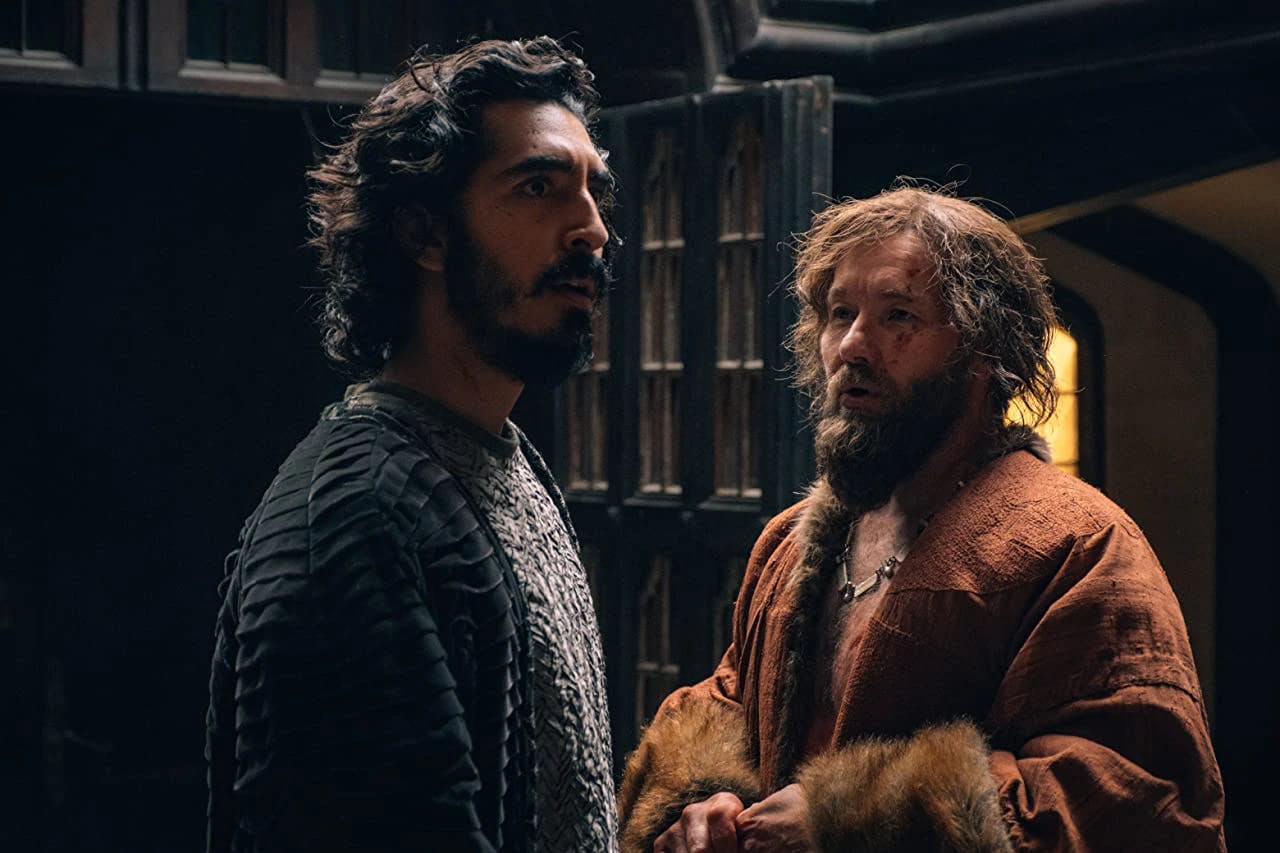
From then, Gawain wears the green sash as a sign of his cowardice and dishonesty to keep him humble. This is much more satisfying for a medieval chivalric romance that tests the character of an Arthurian knight.
Closing Thoughts
In the end, Gawain’s character in the movie is completely dissatisfying. The viewer is left high and dry with far more questions than answers, which isn’t intriguing, just frustrating. Why were we shown Gawain rotting into nothing but bones after being tied and gagged by the thieves? Why were there hallucinogenic mushrooms? Why did Gawain hallucinate about moss growing on his hands or the Green Knight standing before him? These hallucinations make the viewer question the reality of everything Gawain experiences subsequently, which I think seriously undercuts the film rather than helps it. Furthermore, several of these scenes could have been cut from the film like excess fat from a steak without affecting the flavor at all – or maybe even enhancing it.
Absolutely see the film for yourself to form your own opinion, but I don’t think it lives up to the medieval chivalric romance it attempts to adapt.
Readers make our world go round. Make your voice heard in the official Evie reader survey.